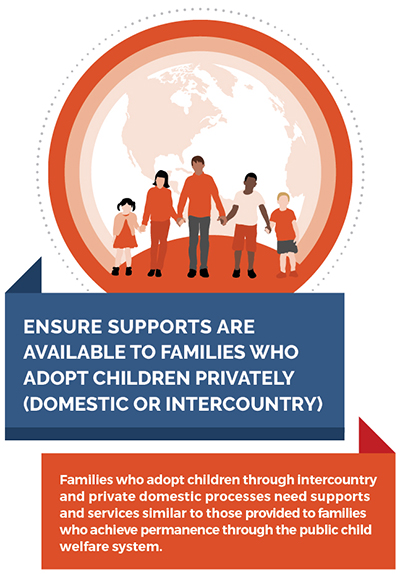Key Message: Ensure Supports Are Available to Families Who Adopt Children Privately (Domestic or Intercountry)

While most adoptees are physically and emotionally healthy, adopted children are more likely than non-adopted children to have significant physical health problems as well as difficulties with emotions, concentration, and behavior. Most often, this increased risk is due to adoptees’ exposure to adverse experiences before coming to their adoptive families. Children who are adopted through intercountry and private domestic processes are likely to have been exposed to many of the same adverse childhood experiences as children adopted through the public child welfare system. As a result, families who adopt through intercountry or private domestic arrangements are likely to have needs similar to those of families who adopt from the public child welfare system. For families formed through intercountry or private domestic adoptions, the typical issues associated with adoption may be confounded by cultural differences, language barriers, and the negative effects of children being placed in institutional settings. Unfortunately, some child welfare systems do not allow families formed through intercountry or private domestic adoptions to access post-permanency services, while other systems allow these families to access services but may charge a fee.

